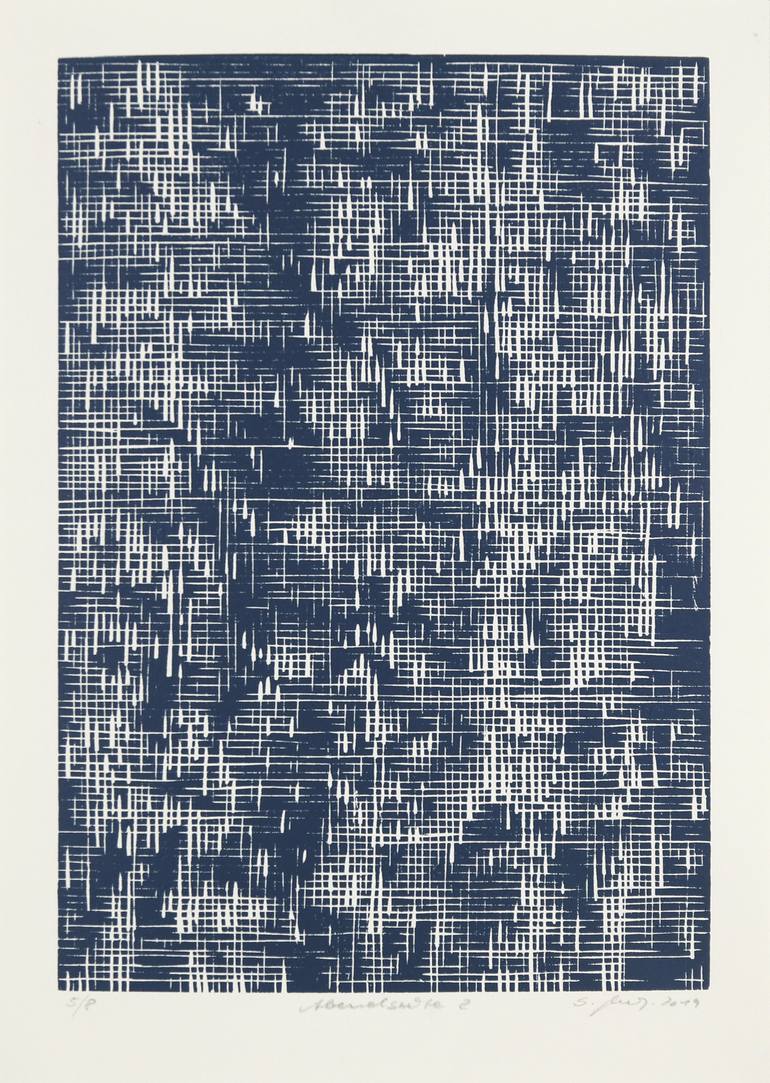







12 Views
2
View In My Room
Printmaking, Woodcut on Paper
Size: 9.8 W x 13.8 H x 0.1 D in
Ships in a Tube
12 Views
2
Artist Recognition

Featured in One to Watch

Artist featured in a collection
ABOUT THE ARTWORK
DETAILS AND DIMENSIONS
SHIPPING AND RETURNS
The basic graphic idea of this print series is that of image manipulation and the associated critical questioning of the visible: To what extent can a new visibility in the midst of the virtualized visible rediscover the artistically "invisible"? In these works, Osnowski seems to react to modern au...
Year Created:
2019
Subject:
Styles:
Mediums:
Print, Woodcut on Paper
Rarity:
Limited Edition of 8
Size:
9.8 W x 13.8 H x 0.1 D in
Ready to Hang:
Not Applicable
Frame:
Not Framed
Authenticity:
Certificate is Included
Packaging:
Ships Rolled in a Tube
Delivery Cost:
Shipping is included in price.
Delivery Time:
Typically 5-7 business days for domestic shipments, 10-14 business days for international shipments.
Returns:
The purchase of photography and limited edition artworks as shipped by the artist is final sale.
Handling:
Ships rolled in a tube. Artists are responsible for packaging and adhering to Saatchi Art’s packaging guidelines.
Ships From:
Portugal.
Need more information?
Need more information?
Stefan Osnowski
Portugal
Stefan Osnowski is a German visual artist who employs one of the oldest reproduction techniques to create an intricate, digitally-inspired, ultra-modern aesthetic. He exclusively uses the centuries-old process of woodblock printing. Osnowski explores digital codes, transforming them into analog representations to depict phenomena such as time, movement, and space within a two-dimensional image frame. This transformation involves converting the image into an abstract binary barcode—1s and 0s—carved into a wooden panel and printed by hand using palm-sized glass lenses. The process of selecting a theme or medium is as integral to the concept as the physical contact and craftsmanship involved. In 2024, Osnowski was awarded third place in the international Luxembourg Art Prize. He lives and works in Lisbon. „My work explores the tension between structure and unpredictability, transforming familiar motifs into shifting frameworks of time and space. By weaving geometric harmony with chaotic disruptions, I blur the boundaries between rationality and emotion. The result is a visual language that oscillates between control and spontaneity, figuration and abstraction—inviting the viewer to navigate a dynamic, ever-changing landscape.“
Artist Recognition

Featured in Saatchi Art's curated series, One To Watch

Artist featured by Saatchi Art in a collection
Why Saatchi Art?
Thousands of
5-Star Reviews
We deliver world-class customer service to all of our art buyers.
Global Selection of Original Art
Explore an unparalleled artwork selection from around the world.
Satisfaction Guaranteed
Our 14-day satisfaction guarantee allows you to buy with confidence.
Support Emerging Artists
We pay our artists more on every sale than other galleries.
